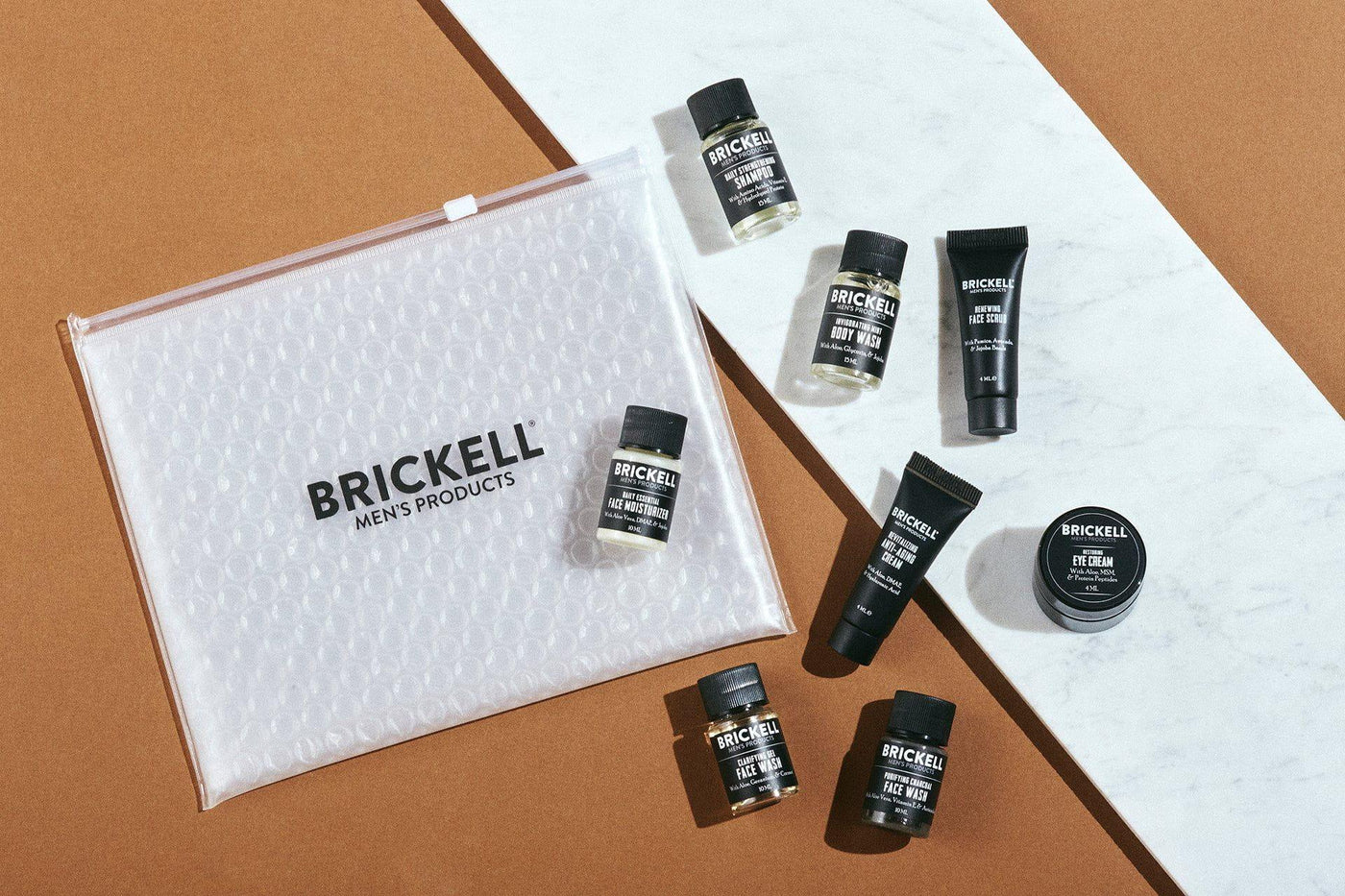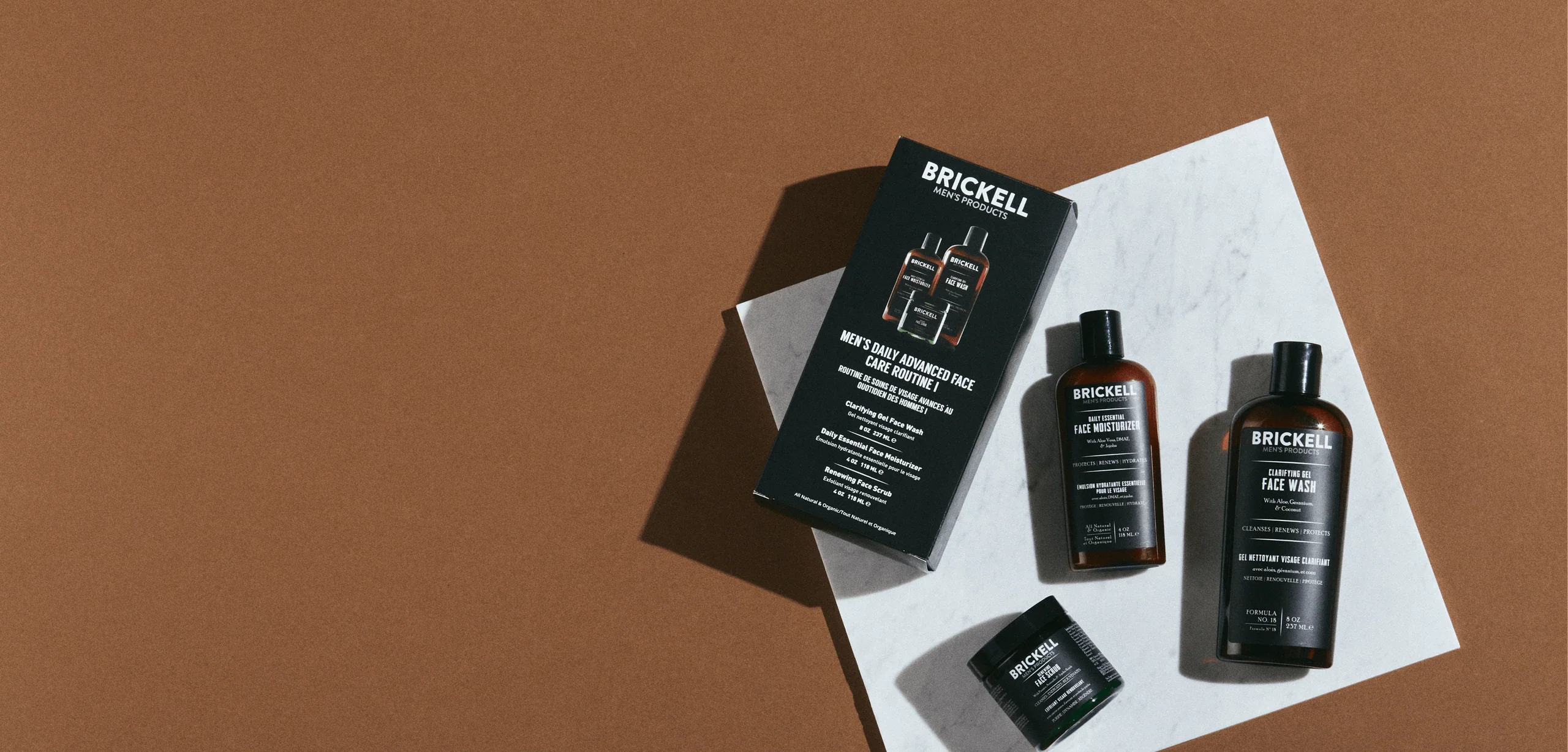The Grooming Manual
Stay Away From These Toxic Ingredients in Your Cologne

News flash: not all colognes are great for you. In fact, the majority of cheap colognes - and even some nice ones - are packed with synthetic, harmful ingredients that can cause short and long-term health problems.
Here are some of the ingredients to avoid and what you should look for in your cologne instead.
Toxic Ingredients to Avoid
Parabens
This is a toxic ingredient that you probably know you should avoid - but you may not know why or exactly what you’re dealing with.
Parabens are a family of preservatives - including methylparabens, propylparabens, butylparabens, and ethylparabens - that are often used to extend shelf life or prevent mold and bacteria from growing in cosmetic products.
They're effective at what they do, which is why they were popular in so many products for decades. But they’re also harmful. According to the European Commission’s Scientific Committee on Consumer Products, parabens can disrupt the endocrine system and cause reproductive and developmental disorders.
What’s more, the FDA acknowledges several studies linking parabens - which also mimic estrogen - to breast cancer, skin cancer, and decreased sperm count.
To avoid these issues, make sure that you keep away from products with ingredients that contain the suffix “-paraben.” Also, keep in mind that most paraben-free products will be labeled as such. If you don’t see “paraben-free,” then, you should probably investigate further.
Polyethylene glycol (PEG compounds)
PEGs are compounds widely used in cosmetics as thickeners, solvents, softeners, and moisture-carriers. And those tiny colorful beads found in face scrubs or exfoliating washes? Those are PEGs, too.
While PEGs themselves aren’t bad, they can be too harsh for daily use. And they cause irritation when used on broken skin.
What’s worse, PEGs are often contaminated with ethylene oxide (a known carcinogen that easily penetrates the skin) and 1,4-dioxane (which causes respiratory problems and is banned in Canada).
Additionally, these small particles go right through our sewage systems into waterways, where they are often consumed by marine animals. This makes them a huge environmental hazard.
Phthalates
Phthalates are plasticizing chemicals used to make products more pliable or to make fragrances stick to skin. They’re used in hundreds of personal care products, including soap, shampoo, hair spray, and nail polish.
They can be extremely dangerous, particularly to children. It’s best to avoid them altogether (even if you’re an adult) as they can be serious endocrine disruptors and even cause birth defects. Congress has already banned several types of phthalates from children’s products.
Allergens
Both synthetic and natural fragrances can cause allergic reactions in some people. An allergen is a substance that activates an immune response - usually resulting in inflammation, redness, itchiness, and other uncomfortable signs that your immune system is going into overdrive unnecessarily.
So what should you do? Know yourself and avoid any ingredients that have caused even slight reactions or irritation in the past. Some of the fragrant ingredients that make one guy smell great make another experience an allergic reaction - everyone is different.
And remember - you might not be able to tell whether a product contains an allergen that bothers you just by smelling it. You can’t identify all hidden ingredients from a whiff alone.
Plus, an offending product may have no aroma because the fragrance is included to mask the odor of the real skincare ingredients which don’t smell agreeable. Do your research and make sure you understand which ingredients are triggers for you.
Synthetic Dyes
Used to make cosmetics "pretty," synthetic colors and synthetic hair dyes should be avoided at all costs. They will be labeled as FD&C or D&C, followed by a color and a number.
Many synthetic colors can be carcinogenic. If a cosmetic contains them, don't use it.
Sulfates
Sulfates go by many names, including sodium laureth sulfate, sodium lauryl sulfate, sodium laureth sulfate, alkylbenzene sulfonate, sodium cocoyl sarcosinate. In general, sulfates are surfactants that can cause skin irritation or trigger allergies.
They have also been shown to contribute to skin irritation, canker sores, disruption of the skin’s natural oil balance, and eye damage - yikes! And they're widely believed to contribute to cystic acne, particularly around the mouth and the chin.
If that’s not bad enough, SLES is often contaminated with 1,4-dioxane, a byproduct of a petrochemical process that’s known to cause respiratory problems.
In short, don’t mess with this stuff.
Silicone
Silicone is interesting because it’s not actually toxic in and of itself. However, it can prevent moisture from getting into your skin - which causes skin dehydration, clogs pores, and irritates the skin.
Good Ingredients to Incorporate
The good news? Not all fragrances will cause sensitization, so you don’t have to nix everything that smells nice. Some natural ingredients have a pleasant fragrance but cause no irritation and are great for the skin.
That's what we strive for at Brickell, and it's how we crafted both of our natural colognes - Accolade and Eminent. Neither contain any parabens, glycols, phthalates, allergens, synthetic dyes, sulfates, or silicones.

